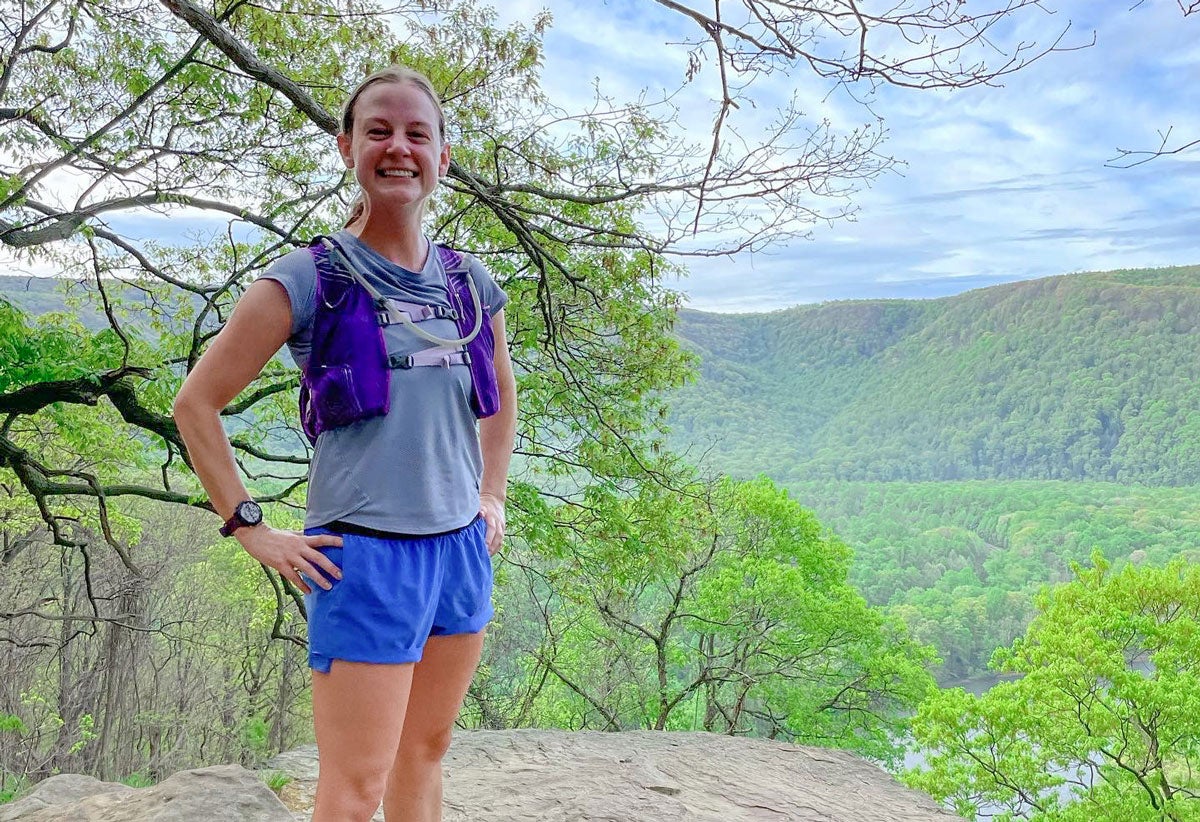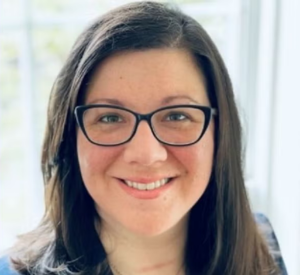I started running in middle school to meet friends and be part of a team. Little did I know, it became something I would continue into adulthood that would not only allow me to race up mountains and around the world, but it would also teach me lessons that apply to my academic and professional life. I want to reflect on how trail running has prepared me for a different kind of starting line: the pursuit of my Doctor of Medical Science (DMSc) at the University of Pittsburgh.
My advisor is my coach, and my peer reviewer is my training partner.
Having a running coach and training partners has improved my performance in trail races. My team is there to guide me, pinpoint areas for improvement (it’s always speedwork) and help me surpass my goals. At Pitt, my advisor was Dr. Mary Allias, the director of the DMSc program and associate professor. She was my coach, and my peer reviewer, who was another student in the program, was my training partner. They provided valuable feedback on my assignments which furthered my critical thinking, and as a result, improved my capstone project. Dr. Allias reminded me that she was there to collaborate and not just in instances where I needed help.

“If it’s not a hell yes, it’s a no.”
When it comes to choosing a race, my running coach tells me, “If it’s not a ‘hell yes,’ it’s a ‘no.’” The race has to truly excite me and be one that I want to work towards, even when the workout is really hard (like mile repeats) or the Pittsburgh weather is terrible. When choosing my capstone project, I used the same mentality. I chose a capstone project that was a “hell yes,” one that excited me and was meaningful to patients receiving palliative care so that I would continue to dedicate time to it despite any challenges.
My “hell yes” project was “Decreasing the Use of Stigmatizing Language in Patients Receiving Palliative Care.” A small group of advanced practice providers (APPs) completed an education module that explained the harms of stigmatizing language and gave them practical strategies to write compassionate and clinically accurate notes. Charts written by APPs were reviewed before and after the training which showed a 64% decrease of stigmatizing language used in clinical documentation. These changes can lead to more compassionate care for our patients, which is important during vulnerable times.
Progress, not perfection.
Striving for perfection in my training leads to injuries or feelings of burnout which prevents me from improving. Throughout the first semester of the DMSc program, I had to remind myself of the importance of progress over perfection with my literature review and capstone document. Accepting that it wouldn’t be perfect on the initial drafts relieved me from self-imposed pressure and allowed me to see my personal growth and my project improve along the way.

Remember my “why.”
It is easy to become overwhelmed with the miles ahead (especially in an ultramarathon) and want to give up. In those moments, I center my focus on the present mile and remember my “why.” Sometimes, I say my mantra out loud for the trails to hear, “I am a good hill runner…I can do hard things…”
The structure of Pitt’s DMSc program helped me to focus on one part of my capstone project at a time. It broke the quality improvement (QI) process down into manageable parts. I learned about Plan-Do-Study-Act (PDSA) cycles, how to do a root cause analysis and stakeholder analysis, create and validate surveys, collect and interpret data and write a capstone paper one section at a time. By focusing on the present and trusting the process, I knew I would get there one mile, or one assignment, at a time.
I also reminded myself of my “why.” I wanted to grow as a physician assistant, ensure patients received compassionate care and share my knowledge with others. “I will get my doctorate…I can do hard things…”
Celebrate each finish line!
Crossing the finish line of a race is a huge achievement and worthy of celebration. It was also important to celebrate finish lines in each semester. It’s okay if the trail to the finish was rocky, what matters is continuing to choose to do the work to get there and overcoming any setbacks when they arise. Whether it was completing an assignment, finishing a draft for part of my literature review or finishing the semester, celebrating those milestones gave me a sense of accomplishment and fueled me for what was next for my capstone project.
Running helped me succeed during Pitt’s DMSc program. It relieved stress, gifted me time in nature and reminded me of important lessons. I never thought running would provide me with the tools necessary to obtain my doctorate.
Pitt’s DMSc program gave me a new appreciation for quality improvement and made the process doable. I was able to work full time while completing the DMSc program, and still had time for my family, friends and running. Since graduating, I’ve been promoted to Expert APP at UPMC and ran a 35K in Switzerland. Looking forward, I am excited to work on more projects that drive meaningful change.
Pitt’s DMSc program left me hopeful. Physician assistants/associates are stepping up as advocates and innovators that are committed to improving health care for patients, providers and students. Just like running, the work is challenging and progress can feel slow at times, but every stride moves us toward the finish line we’re all aiming for: better care.


